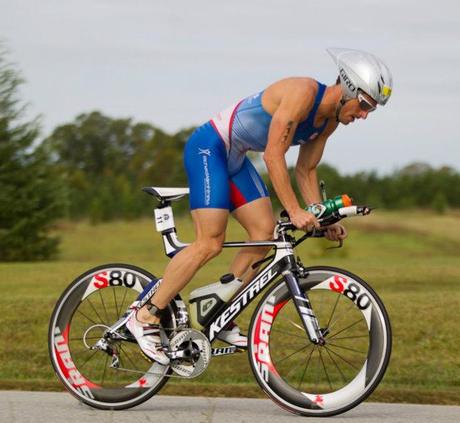
Lequin have we've been working with Richard Allen, one of the US and Britain's leading Iron Man and triathlete competitors, to bring key elements of sports psychology to executive coaching and the world of work.
This blog outlines how Richard prepares mentally for Iron Man and Triathlon races, and how sports psychology can be transfered and used with great effect in the workplace. Indeed, a number of coaches such as Jamie Reed, who in additon to being an executive coach is also a rowing coach, uses sports psycholgy methods in their executive coaching sessions.
How Richard prepares for each race & how this can be used in coaching and at workMentally, Richard approaches each race in three stages: planning and goal setting; mental conditioning; and self-assessment.
Stage One: Goal setting"My ultimate goal is always to win the race," says Richard. "Goals that are easy to achieve aren't going to do a lot. They're minimums that are 'acceptable', and this is negative thinking."
Stage Two: Mental conditioning
During training, Richard looks at 5 areas:
1. Confidence:
"Iron Man takes eight and a half hours, so I need to know that I can do the distance and win."
Building clients' self-belief should be at the core of coaching so they can overcome their fears and develop a vision they believe in.
2. Commitment:
"If you're not bothered about a goal, you're not going to achieve," says Richard.
When you set a goal, you need to find a compelling reason for completing it. You then need to keep focused on the compelling reason 'why' rather than 'how'.
3. Visualisations and focus
"Before I race, I develop in my mind a picture of the race from start to finish in every fine detail. Then when I get to the race, I've seen myself winning and know it's going to happen." says Richard.
This technique can be extremely helpful for preparing for difficult conversations, meetings or pitches, as well as longer term goals or visions.
4. Distraction control
"When an athlete isn't prepared," says Richard "that's when he goes to pieces." Before each race, Richard makes a list of everything that could go wrong, like a puncture or goggles coming off on the swim. Then he writes down a solution to each problem.
Richard focuses on solutions, not problems and he takes personal responsibility. It's something we do with our clients - help them focus on the positives, and challenge them to stop blaming others or circumstances so they can stand in a position of possibility and power.
5. Enjoyment
Finally, Richard makes sure he's enjoying racing. "Iron Man, for the most part, is serious and intense. I make sure I enjoy the crowd and the atmosphere, and take it all in."
At work, it's too easy to get bothered by hardships and politics. Richard's perspective - accepting the negative and concentrating on what he enjoys - is one to encourage with all clients.
Stage Three: Self-assessment
"I congratulate myself, even when I don't win. If I know I gave it everything I had, that's good," says Richard.
Each goal must have a reward, like treating themselves to a meal out. And, like Richard, if a goal isn't achieved, and they´ve done everything in their power, then it's still important to take the positives from it otherwise confidence could take a big knock.
Richard Allen and Lequin jointly run Triathlon 4 Business, a two-day training workshop integrating triathlon training with business coaching.
For more info on Triathlon 4 Business call Lequin Executive Coaching on 01225 33 88 93
Who are Lequin Leadership Development ?Lequin Leadership Development provide customer service training, executive coaches, business coaches, executive business coaching, coach training courses, coach training, coaching skills for managers, coaching culture programmes, board coaching, outplacement support, executive coach, coach supervision, executive coaching, talent management, change management, change management training, leadership coaching and leadership development.
